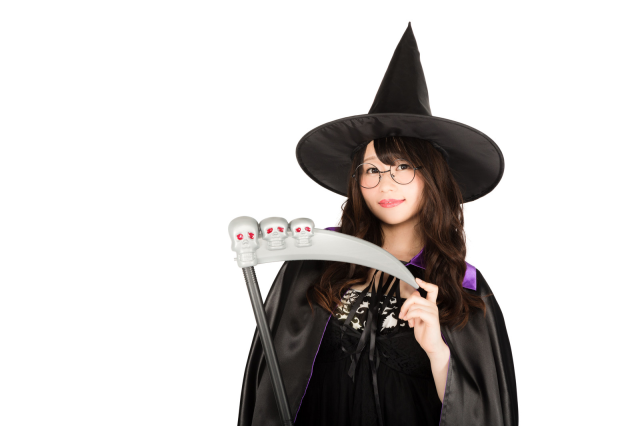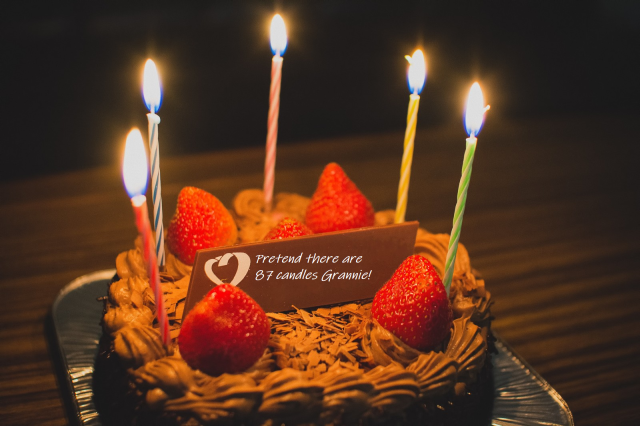
Most would call Japan’s famously long life expectancy a good thing, but for these Japanese women it’s more than a decade more than they want to stick around.
This Monday, Japan’s industrious workforce and student body enjoyed a day off as offices and schools were closed for Respect for the Aged Day, or Keiro no Hi, as it’s called in Japanese. An annual holiday, the most common way to celebrate Respect for the Aged Day is by gathering three generations of the family as grandparents, their children, and their children’s children spend the day or enjoy a meal together.
However, according to a survey by insurance provider MetLife, a large proportion of young adults in Japan aren’t really looking forward to Respect for the Aged Day becoming about them. The company polled 14,100 people between the ages of 20 and 79, and among the questions it asked was “Until what age do you want to live?”
The average response from male respondents between 20 and 29 was 78.1 years old, while for women in their 20s it was 76.9, both of which were the lowest responses in the survey. While some would say those numbers are still indicative of a long, full life, both fall far short of average life expectancy in Japan, which (as of 2017) is 81.09 for men and 87.26 for women. In other words, the young Japanese adults who were surveyed don’t want to live as long as they’re likely going to, with women having more than a decade of unwanted time shackled to their mortal existence.
▼ As with most food portions in the country, Japanese cakes tend to be small, so pyrotechnics really can’t keep up with the life expectancy.
However, this doesn’t necessarily mean that Japanese men and women in their 20s are already craving death. If anything, it speaks to how attitudes about life and age change as we go through different stages of our lives. When simply asked about if they wanted to live a long life, without any specific amount of time as a set definition, the least enthusiastic group was actually participants aged 50-59, with 47.7 percent saying they didn’t desire longevity. That was the most negative age group in the survey (the average for the entire group was 41.2 percent) which implies that the younger respondents do, at least in comparison to the 50-59 group, have a somewhat stronger desire for a long life even if they may not grasp the mathematical criteria for one.
It’s also worth pointing out that only 38 percent of those aged 60-79 said they didn’t want a long life, which was a smaller proportion than any other group. Looked at all together, those numbers describe a desire to live a long time starts out moderately high, then dips as people get older, perhaps as the increasing pressure of adult life weighs them down. But then that longing for a long life rises again, becoming stronger than ever before and suggesting that life’s sweetest stage comes in retirement. So while the young adults in the survey may not necessarily want to grow old now, once they do odds are they’ll want to keep growing older.
Source: Yahoo! Japan News/Jiji via Jin
Top image: Pakutaso
Insert images: Pakutaso (edited by SoraNews24)
Follow Casey on Twitter as he continues his crusade to make the birthday donut an acceptable substitute for birthday cake.


 Nearly half of young Japanese women say they “hate” the company they work for in survey
Nearly half of young Japanese women say they “hate” the company they work for in survey One in four young people in Japan’s biggest cities thinking of moving to the countryside【Survey】
One in four young people in Japan’s biggest cities thinking of moving to the countryside【Survey】 Roughly 40 percent of single Japanese men in their 20s have never been on a date, survey says
Roughly 40 percent of single Japanese men in their 20s have never been on a date, survey says Majority of Japanese men in their 20s say they want men-only train cars in survey
Majority of Japanese men in their 20s say they want men-only train cars in survey More than one in three Japanese working women in survey would rather be housewives
More than one in three Japanese working women in survey would rather be housewives Foreigner’s request for help in Tokyo makes us sad for the state of society
Foreigner’s request for help in Tokyo makes us sad for the state of society Japanese city loses residents’ personal data, which was on paper being transported on a windy day
Japanese city loses residents’ personal data, which was on paper being transported on a windy day Harajuku Station’s beautiful old wooden building is set to return, with a new complex around it
Harajuku Station’s beautiful old wooden building is set to return, with a new complex around it Akihabara pop-up shop sells goods made by Japanese prison inmates
Akihabara pop-up shop sells goods made by Japanese prison inmates Red light district sushi restaurant in Tokyo shows us just how wrong we were about it
Red light district sushi restaurant in Tokyo shows us just how wrong we were about it Ghibli Park now selling “Grilled Frogs” from food cart in Valley of Witches
Ghibli Park now selling “Grilled Frogs” from food cart in Valley of Witches Sandwiches fit for a sumo served up in Osaka【Taste Test】
Sandwiches fit for a sumo served up in Osaka【Taste Test】 Tokyo Tsukiji fish market site to be redeveloped with 50,000-seat stadium, hotel, shopping center
Tokyo Tsukiji fish market site to be redeveloped with 50,000-seat stadium, hotel, shopping center Japanese ramen restaurants under pressure from new yen banknotes
Japanese ramen restaurants under pressure from new yen banknotes Historical figures get manga makeovers from artists of Spy x Family, My Hero Academia and more
Historical figures get manga makeovers from artists of Spy x Family, My Hero Academia and more McDonald’s new Happy Meals offer up cute and practical Sanrio lifestyle goods
McDonald’s new Happy Meals offer up cute and practical Sanrio lifestyle goods All-you-can-drink Starbucks and amazing views part of Tokyo’s new 170 meter-high sky lounge
All-you-can-drink Starbucks and amazing views part of Tokyo’s new 170 meter-high sky lounge French Fries Bread in Tokyo’s Shibuya becomes a hit on social media
French Fries Bread in Tokyo’s Shibuya becomes a hit on social media Studio Ghibli releases new action figures featuring Nausicaä of the Valley of the Wind characters
Studio Ghibli releases new action figures featuring Nausicaä of the Valley of the Wind characters New private rooms on Tokaido Shinkansen change the way we travel from Tokyo to Kyoto
New private rooms on Tokaido Shinkansen change the way we travel from Tokyo to Kyoto Studio Ghibli glasses cases let anime characters keep an eye on your spectacles
Studio Ghibli glasses cases let anime characters keep an eye on your spectacles Beautiful Ghibli sealing wax kits let you create accessories and elegant letter decorations【Pics】
Beautiful Ghibli sealing wax kits let you create accessories and elegant letter decorations【Pics】 Studio Ghibli releases Kiki’s Delivery Service chocolate cake pouches in Japan
Studio Ghibli releases Kiki’s Delivery Service chocolate cake pouches in Japan New definition of “Japanese whiskey” goes into effect to prevent fakes from fooling overseas buyers
New definition of “Japanese whiskey” goes into effect to prevent fakes from fooling overseas buyers Our Japanese reporter visits Costco in the U.S., finds super American and very Japanese things
Our Japanese reporter visits Costco in the U.S., finds super American and very Japanese things Studio Ghibli unveils Mother’s Day gift set that captures the love in My Neighbour Totoro
Studio Ghibli unveils Mother’s Day gift set that captures the love in My Neighbour Totoro New Japanese KitKat flavour stars Sanrio characters, including Hello Kitty
New Japanese KitKat flavour stars Sanrio characters, including Hello Kitty More foreign tourists than ever before in history visited Japan last month
More foreign tourists than ever before in history visited Japan last month New Pokémon cakes let you eat your way through Pikachu and all the Eevee evolutions
New Pokémon cakes let you eat your way through Pikachu and all the Eevee evolutions Sales of Japan’s most convenient train ticket/shopping payment cards suspended indefinitely
Sales of Japan’s most convenient train ticket/shopping payment cards suspended indefinitely Sold-out Studio Ghibli desktop humidifiers are back so Totoro can help you through the dry season
Sold-out Studio Ghibli desktop humidifiers are back so Totoro can help you through the dry season Japanese government to make first change to romanization spelling rules since the 1950s
Japanese government to make first change to romanization spelling rules since the 1950s Ghibli founders Toshio Suzuki and Hayao Miyazaki contribute to Japanese whisky Totoro label design
Ghibli founders Toshio Suzuki and Hayao Miyazaki contribute to Japanese whisky Totoro label design Doraemon found buried at sea as scene from 1993 anime becomes real life【Photos】
Doraemon found buried at sea as scene from 1993 anime becomes real life【Photos】 Tokyo’s most famous Starbucks is closed
Tokyo’s most famous Starbucks is closed One Piece characters’ nationalities revealed, but fans have mixed opinions
One Piece characters’ nationalities revealed, but fans have mixed opinions We asked a Uniqlo employee what four things we should buy and their suggestions didn’t disappoint
We asked a Uniqlo employee what four things we should buy and their suggestions didn’t disappoint Princesses, fruits, and blacksmiths: Study reveals the 30 most unusual family names in Japan
Princesses, fruits, and blacksmiths: Study reveals the 30 most unusual family names in Japan Which prefecture has the most chilled young people? Survey asks 20 year olds “what are you worried about?”
Which prefecture has the most chilled young people? Survey asks 20 year olds “what are you worried about?” Young Japanese men say paying for dates is the hardest part of life as a guy【Survey】
Young Japanese men say paying for dates is the hardest part of life as a guy【Survey】 Is it OK to split the bill on a date in Japan? Survey asks what women and men of different ages think
Is it OK to split the bill on a date in Japan? Survey asks what women and men of different ages think Only one demographic in survey is happy about Japan’s workplace obligation Valentine’s chocolate
Only one demographic in survey is happy about Japan’s workplace obligation Valentine’s chocolate Food, sleep, or sex? Survey asks Japanese people which they can’t live without
Food, sleep, or sex? Survey asks Japanese people which they can’t live without What’s the best way to close the gender gap in Japan? Japanese women weigh in
What’s the best way to close the gender gap in Japan? Japanese women weigh in Survey claims that 30 percent of boys’ love fans in Japan are men
Survey claims that 30 percent of boys’ love fans in Japan are men Live with parents or burn through your savings? Survey of young anime workers draws bleak picture
Live with parents or burn through your savings? Survey of young anime workers draws bleak picture Why are people in their 20s moving outside of Tokyo to Yokohama and other areas?
Why are people in their 20s moving outside of Tokyo to Yokohama and other areas? How many married people with children in Japan admit to cheating on their spouse? Survey says…
How many married people with children in Japan admit to cheating on their spouse? Survey says… Rate of young Japanese people who want to get married someday drops to lowest ever in survey
Rate of young Japanese people who want to get married someday drops to lowest ever in survey Which jobs in Japan have the most and least overtime? Survey investigates
Which jobs in Japan have the most and least overtime? Survey investigates Survey shows that many Japanese business people’s sleep patterns have changed since teleworking
Survey shows that many Japanese business people’s sleep patterns have changed since teleworking Seven reasons why 80 percent of young South Koreans don’t want to live in their own country
Seven reasons why 80 percent of young South Koreans don’t want to live in their own country Younger Japanese men less interested in drinking, according to survey
Younger Japanese men less interested in drinking, according to survey Japanese manners: Majority say “Loud laughing during a movie is rude” in survey
Japanese manners: Majority say “Loud laughing during a movie is rude” in survey Tokyo likely to reduce age limit on kids in opposite-sex public baths, report says
Tokyo likely to reduce age limit on kids in opposite-sex public baths, report says
Leave a Reply